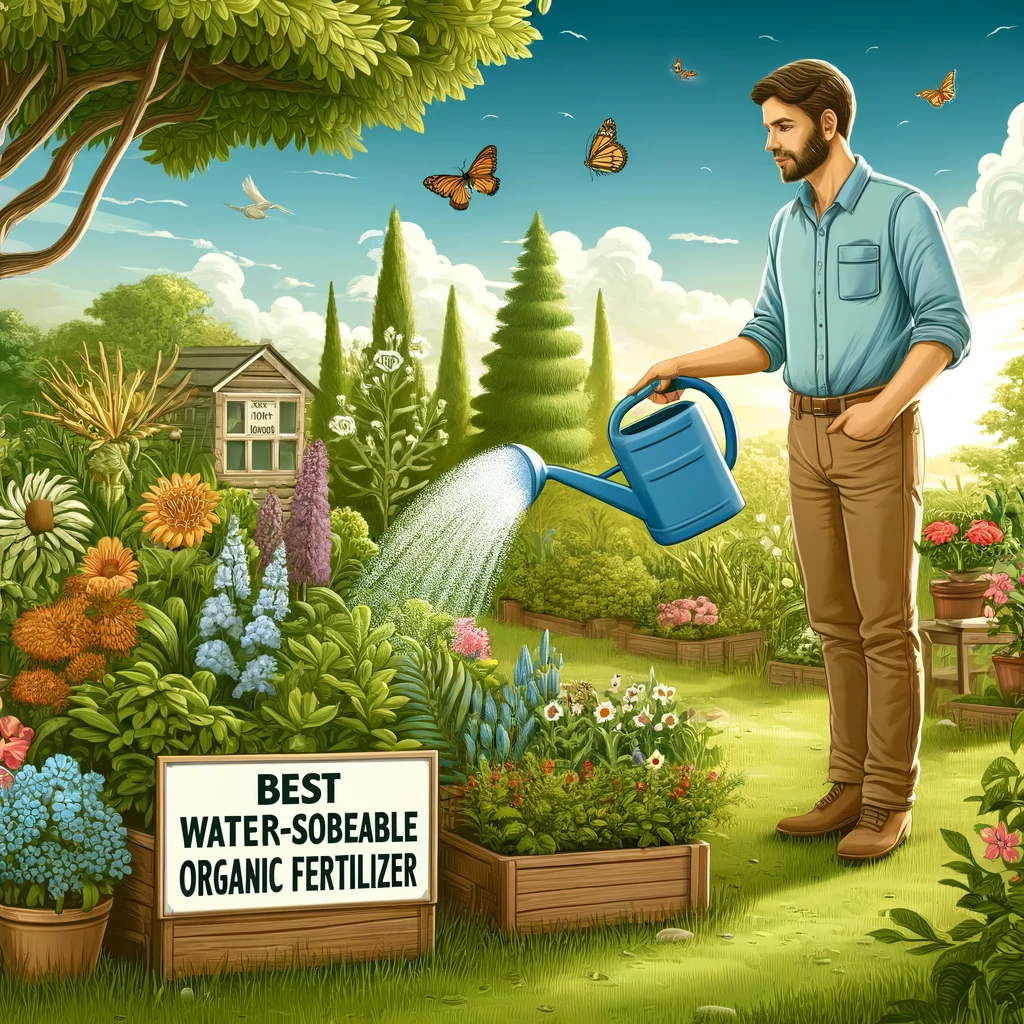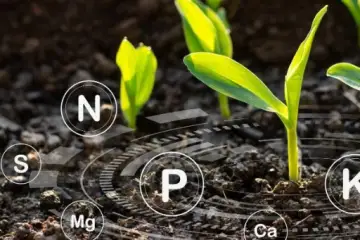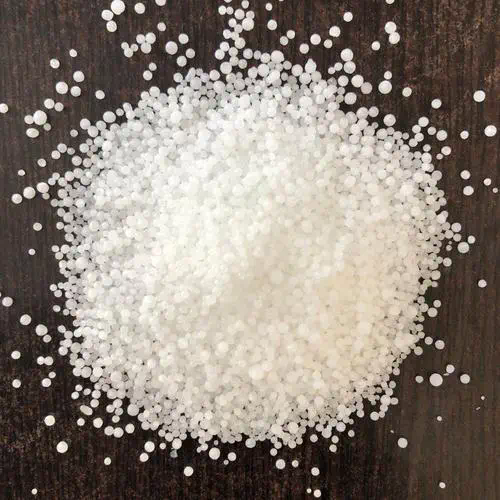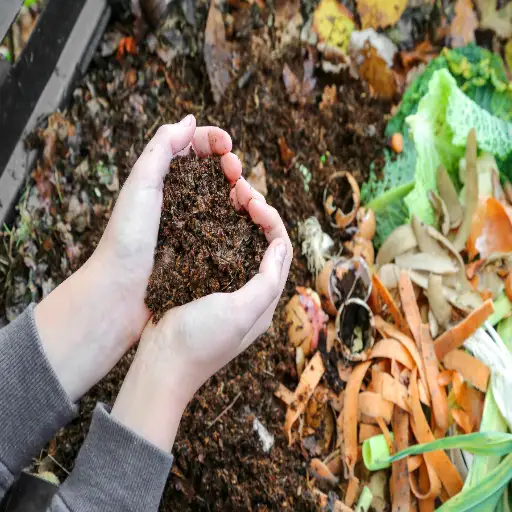Introduction
The tide is turning in favor of water soluble organic fertilizers as they are making headway among gardeners and farmers because they have instant effects and are used with no complications in different irrigation systems. These kinds of fertilizers dissolve readily when put in water hence plants can take it up without delay. This method of feeding is very efficient, giving plants nutrients that are quickly absorbed, unlike traditional organic fertilizers which require a long time to be broken down.
Water solubility is integral to the modern agricultural pursuit for which fertilizer works best. Plants grow more rapidly and develop stronger when water soluble organic fertilizers improve nutrient uptake efficacy. Such types of fertilizers are particularly useful in protected environments such as during hydroponic systems or at crucial growth phases where plants need nutrients most.
Dr Emily Grant, an expert on plant nutrition asserts that “quick nutrients release by water soluble organic fertilizers can boost plant health massively especially during peak growth periods; this is important for optimal growth and yield.” By selecting appropriate varieties of organic water-soluble fertilizer, farmers will be able to ensure that their crops receive the best care possible while minimizing the impact on the environment.
Understanding Water-Soluble Organic Fertilizers
Water-soluble organic fertilizers are popular because they dissolve in water, allowing for the rapid delivery of nutrients directly to crops. This quick supply is crucial for effective nutrient uptake, especially during key growth stages. These fertilizers combine organic substances with natural processes, providing a sustainable and environmentally friendly nutrient source.
Importance of Organic Components:
Organic fertilizers enrich the soil with essential plant nutrients and organic matter using natural substances like plant extracts, animal manures, and mineral powders. This enhancement boosts soil organism content and improves soil structure, leading to better water retention and aeration. The presence of organic components ensures that these fertilizers nourish the plants while maintaining or improving soil health.
Major Nutrients and Their Functions:
The best water-soluble organic fertilizers provide a balanced array of essential nutrients:
- Nitrogen (N): Encourages leaf and stem development.
- Phosphorus (P): Crucial for root development and for promoting flowering and fruiting.
- Potassium (K): Enhances the plant’s overall health and disease resistance.
These nutrients are vital for supporting the entire lifecycle of plants, from root to leaf. Dr. Alan Harper, an agronomist specializing in sustainable agriculture, emphasizes, “Water-soluble organic fertilizers enable precise nutrient management, which is essential for optimal plant health and environmental conservation.”
Understanding the characteristics of water-soluble fertilizers is key when choosing the right type, as they offer multiple benefits. They not only promote vigorous plant growth but also foster sustainable horticultural practices by enhancing soil fertility and reducing nutrient runoff to water bodies.

Kinds of Water Soluble Organic Fertilizers
Water-soluble organic fertilizers come in various forms, each suited for different gardening needs and plant types. Understanding these options can help gardeners select the right product to efficiently enhance plant growth.
- Seaweed Extracts:
- About: Derived from marine algae, seaweed extracts are rich in trace minerals, amino acids, and plant hormones that stimulate plant growth and improve stress resistance.
- Benefits: Promotes root development, stimulates robust growth, and enhances plant health during stress conditions such as drought or pest attacks.
- Fish Emulsions:
- About: Processed fish waste that is high in nitrogen, phosphorus, and potassium.
- Benefits: Provides a rapid nutrient supply, especially beneficial during the early stages of plant growth. It has a strong odor and should be used according to guidelines to avoid over-fertilization.
- Solid Water Soluble Powders:
- About: Dry formulations of organic nutrients that dissolve in water, suitable for application via watering cans or drip irrigation systems.
- Benefits: Allows for precise nutrient management, making it ideal for indoor and precision gardening.
- Composted Animal Manures:
- About: While not all manure is water-soluble, properly composted chicken manure can be processed into a water-soluble form.
- Benefits: Provides a balanced nutrient profile and enriches the soil with organic matter, improving soil structure and fertility over time.
All types of water-soluble organic fertilizers have specific applications and benefits, emphasizing the importance of choosing based on the nutritional needs of the plants and personal preferences in handling. Dr. Lisa Hamilton, who specializes in plant nutrition, suggests, “Seaweed extracts and fish emulsion are excellent for quick results, but solid powders are better for those managing larger or diverse gardens due to their ease of use and control.”
By selecting the appropriate types of water-soluble organic fertilizers, gardeners can significantly improve their plant care regime, leading to healthier plants and more abundant yields.
How to Properly Use Water Soluble Organic Fertilizers
When using water soluble organic fertilizer, correct preparation and application are crucial for ensuring maximum plant growth and optimal resource use. Here’s a guide on how to use these fertilizers effectively in various gardening settings:
- Dissolving the Fertilizer:
- Water Soluble Powders and Liquids: Ensure the fertilizer is completely dissolved in water as specified by the manufacturer. For example, mix parts by weight of fertilizer with parts by volume of water according to the manufacturer’s instructions.
- Application Methods:
- Foliar Application: Spray the dissolved fertilizer directly onto the leaves of the plants. This method is excellent for immediate nutrient uptake, especially if plants are showing signs of nutrient stress.
- Soil Application: Apply the solution to the soil around the plants using a watering can or, preferably, a drip irrigation system to deliver nutrients directly to the roots.
- Timing of Application:
- Growing Period: Apply early in the morning or late in the day to minimize evaporation and maximize absorption. Increase the frequency of application during the vegetation stage as plants are growing more rapidly.
- Seasonal Adjustments: Reduce the use of fertilizers in the winter months while plants are dormant.
- Frequency and Dosage:
- Read the Instructions Carefully: Follow the directions on the fertilizer package to prevent over-fertilization, which can lead to nutrient burn and environmental runoff.
- Adapt Frequency and Concentration Based on Plant Response: Monitor your plants and adjust the frequency and concentration of your applications based on their response. Yellowing leaves and burnt tips often indicate over-fertilization.
- Safety and Storage:
- Handling: Always wear gloves and ensure adequate ventilation when mixing and applying water soluble fertilizers.
- Storage: Keep fertilizers in a cool, dry place away from sunlight to maintain their effectiveness.
Dr. Karen Phelps, an eco-agriculturist, emphasizes the importance of precision: “Proper application of water soluble fertilizers requires precision. Matching the right amount to your plants and their needs is crucial for health and sustainability.”
By following these guidelines, gardeners can ensure their plants receive the proper nutrients at the right time, significantly enhancing plant growth and yield.

Case Studies: Water Soluble Organic Fertilizers Success Stories
By providing real-life examples and testimonials, the effectiveness of water soluble organic fertilizers can be demonstrated, offering valuable insights to gardeners and farmers. Here are some success stories:
- Success in Urban Gardening:
- Example: An urban rooftop gardener utilized Seaweed-Based Water Soluble Organic Fertilizer for a small vegetable garden, resulting in increased tomato and lettuce production compared to previous years using traditional fertilizers.
- Outcome: The gardener noted improved plant growth and soil condition, attributed to the beneficial microbial activity encouraged by the organic fertilizer.
- Commercial Farming Improvement:
- Example: A commercial farmer switched to fish emulsion water soluble organic fertilizer for large-scale production of strawberries and cucumbers, aiming to enhance fruit quality and promote environmental sustainability.
- Outcome: The farm reported a 20% increase in yield and a reduction in plant diseases, thanks to improved nutrient availability and the natural resistance provided by the organic fertilizer.
- Hydroponic Systems Efficiency:
- Example: A hydroponic farm specializing in herbs and microgreens adopted an N-P-K balanced water soluble organic fertilizer to optimize nutrient delivery in controlled conditions.
- Outcome: The farm achieved more consistent crop cycles and a 30% faster growth rate, leading to quicker market deliveries and reduced resource usage.
Expert Insight:
- Dr. Simon Bradley, a specialist in sustainable agriculture technologies, commented on these cases: “These stories demonstrate the importance of selecting the appropriate type of fertilizer based on the specific needs of each crop and the growing conditions. Water soluble organic fertilizers allow for precision in both traditional and soil-less farming methods.”
These case studies illustrate how water soluble organic fertilizers can significantly enhance agricultural productivity, improve soil quality, and foster sustainability across various types of farming.
Conclusion: Maximizing Plant Growth with the Best Water Soluble Organic Fertilizer
In conclusion, we can say that the best water soluble organic fertilizers not only promote plant growth but are also useful in maintaining sustainable agriculture. When gardeners and farmers select the right water soluble organic fertilizer they get plants with more growth and produce yields that are healthier to the environment as well.
When selecting and using a certain type of these fertilizers which dissolve in water, it is possible to significantly increase both quality and efficiency of plant development. Therefore, if a farmer or gardener is aiming at achieving the best results in growing his crops, he should choose a type that is suitable for his specific gardening requirements as well as environmental conditions. Taking this into consideration, with carefulness of application; augmented plant growth and preservation could be realized.
Reference sources for best water soluble organic fertilizer:
- College Board – While primarily focused on education and college preparation, the College Board’s commitment to sustainability in education might touch on practices like using organic fertilizers in school gardening projects or sustainability initiatives.
- AP Classroom – Another section of the College Board, AP Classroom offers resources that might include AP Environmental Science materials where topics like sustainable agriculture and perhaps organic fertilizers are discussed.







